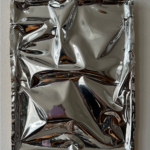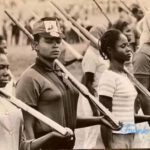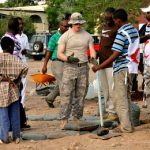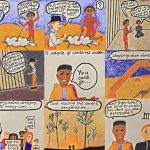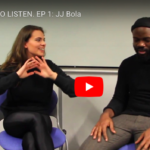by Alisha Archie
From the Text: “In ‘Unsettling the Coloniality of Being/Power/Truth/Freedom’, Sylvia Wynter (2003) argues that during the Renaissance, the West invented a new definition of what it means to be human which provided the foundational basis of modernity…Wynter’s (2003) argument builds on Franz Fanon (among others) who in ‘Black Skin, White Masks’ (2008) – focusing on the Black colonial experience, particularly in the Antilles where he grew up – recognizes through a self-reflective, psychological lens that the European colonial powers systematically erased and suppressed authentic Black identities and instead imposed racist, inferior identities on the colonized…Finally, I have deliberately chosen to leave remnants of the fixture visible around the edges of the Mirror for Nonwhite Peoples as a poignant reminder that the new descriptive statement of the human, Man, is fabricated.”
Category: colonial genocide
Women’s Struggle in Biafra: The Nigerian Civil War as a Direct Consequence of Colonialism
by Carolin Felden. Main Article in German language.
Between 1967 and 1970, Nigeria was engulfed in a devastating war between the Nigerian government and the secessionist Republic of Biafra. The war concluded nearly three years later with Nigeria’s victory, yet it left in its wake a staggering toll of over two million lives lost. Notably, the role of women in the Biafran struggle was multifaceted; they emerged as warriors, scholars, farmers, and providers, playing a crucial role in sustaining the republic during its tumultuous existence. While commonly referred to as the “Nigerian Civil War,” this article contends that such terminology inadequately captures the war’s broader context. The legacy of British colonialism in Nigeria (1914-1961) is posited as a significant factor contributing to the war’s outbreak (cf. Richardson 2019: 79). Consequently, this article seeks to elucidate that the Biafran quest for independence was not merely a confrontation with the Nigerian government but rather a profound struggle against neocolonial foreign domination. Special emphasis will be placed on the indispensable contributions of Biafran women to this cause.
Colonial Legacies – German Volunteer Tourism in Namibia
by Dimitra Dermitzaki
This paper aims at addressing the appropriateness of young “Westerners” when participating in projects of volunteer tourism, inter alia supported by governmental and state funds, while also discussing the complexity of Germany’s refusal of the formal recognition of its committed genocide and reparation payments.
Comic Strip “WHO KNOWS?”
by Tania Plunkett
While studying the subject, “The Invention of Africa,” which was based on V.Y. Mudimbe’s book of the same name, I was struck by the parallels I see in my own country, Australia, regarding the historical and present-day perceptions of Aboriginal and Torres Strait Islanders (ATSI). During my school years through the 1980s and 90s, schools taught Australian colonial history as “Australian history” and painted colonists largely as explorers and heroes. Indigenous histories were mostly excluded or simplified, and ATSI perspectives almost never included.
Genocide in the Congo: It’s Time to Listen – A Video Podcast
by Nina Sophie Meyer
Have you ever asked yourself how Congo is the most resourceful country in the world, yet its people are amongst the poorest? “It’s Time To Listen”, sheds some light on the horrors of the continuing exploitation of the African continent, specifically of the DRC and its people. Not only is this topic largely neglected in the mainstream media, the prevailing discourse is having us believe that the struggles of the DRC and its people are neither directly caused by European continent nor actively affect it. This podcast is an attempt to expose some hidden truths, to explain who is concealing them and why.
